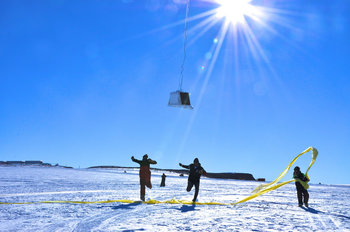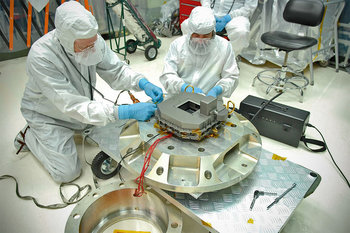
To attain knowledge, add things everyday. To attain wisdom, remove things every day.Knowledge is information that is meaningful to humans. Wisdom is a human characteristic that can be described as good judgement born of knowledge and experience. Wisdom can be considered a high form of knowledge acquisition. The following are illustrative examples of the difference between a knowledgeable and a wise individual.
~ Lao Tsu
Wisdom Is Intuitive
Intuition is nothing but the outcome of earlier intellectual experience.Wisdom is immediately useful to problem solving and decision making whereas knowledge can exist in a highly unusable form. For example, a pilot who immediately knows what a flight problem is and how to solve it can be viewed as wise whereas an aircraft enthusiast who has never flown but has memorized flight manuals can be viewed as knowledgeable.
~ Albert Einstein, Letter to Dr. H. L. Gordon, May 1949
Wisdom Is Quiet
Less is always more. The best language is silence. We live in a time of a terrible inflation of words, and it is worse than the inflation of money.A tendency to offer an intelligent opinion about every topic requires knowledge. Wisdom is often thinking, listening, contemplating and observing such that the wise tend to be slightly more silent than the merely knowledgeable.
~ Eduardo Galeano
Wisdom is Uncertain
I neither know nor think that I know.Knowledge is focused on knowns and tends to dismiss unknowns. Wisdom is very aware of unknowns. For example, it would be rare for the wise to claim that something is impossible.
~ Socrates, as quoted by Plato in Apology of Socrates
Wisdom Is Grey
As far as the laws of mathematics refer to reality, they are not certain; and as far as they are certain, they do not refer to reality.Knowledge offers a clear delineation between true and false, myth and fact, right and wrong, best practice and poor practice, possible and impossible. Wisdom is able to incorporate the complexities of grey areas.
~ Albert Einstein, Sidelights on Relativity, translation by GB Jeffrey and W Perrett
Wisdom is Humble
The most beautiful thing we can experience is the mysterious. It is the source of all true art and science. He to whom this emotion is a stranger, who can no longer pause to wonder and stand rapt in awe, is as good as dead: his eyes are closed.It is characteristic of the wise to view the universe with a sense of awe and wonder. This is due to an appreciation of the beauty of what is known and the stark realization of how little is known.
~ Albert Einstein, as quoted in Introduction to Philosophy by George Thomas White Patrick and Frank Miller Chapman
Wisdom Isn't Dangerous
Perfection of means and confusion of goals seem—in my opinion—to characterize our age.It is a common theme of philosophy and literature that knowledge without wisdom is dangerous. Wisdom has a reputation for being fair, stable and virtuous. In some cases, knowledge is just the technical know-how to do something that may have risks and ethical implications.
Albert Einstein, The Common Language of Science, September 1941
| Wisdom | ||
Knowledge | Wisdom | |
Definition | Information that is meaningful to humans. | The human characteristic of good judgement born of knowledge and experience. |





























